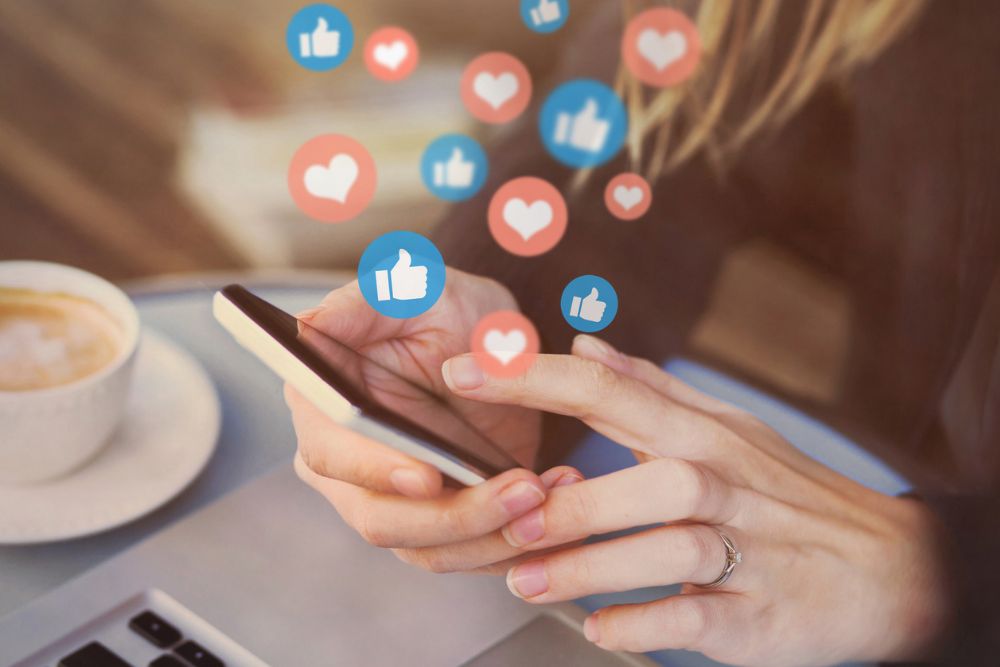Social media is a nearly unavoidable part of daily life. For many people, it’s a way to stay connected, entertained, or informed. But according to the nonprofit Annie E. Casey Foundation, “multiple studies have found a strong link between heavy social media use and an increased risk of depression, anxiety, loneliness, self-harm, and even suicidal thoughts.”
If you’re in recovery for substance use disorder (SUD), alcohol use disorder (AUD), or living with anxiety, depression, or other mental health challenges, constant exposure to online content can intensify emotional struggles, disrupt healing, and make recovery more difficult. Recognizing how social media impacts your mental health is a powerful step toward protecting your well-being.
The Illusion of Perfection
One of the most harmful effects of social media is the tendency to compare your life to others. People typically post highlights: the best vacation, the awesome promotion, the perfectly arranged dinner. When you’re feeling vulnerable, struggling with self-worth, or processing shame from past behaviors, seeing these snapshots can reinforce the belief that you’re falling short.
Social comparison theory isn’t just discouraging—it can deepen symptoms of depression, fuel anxiety, and even trigger cravings or feelings of hopelessness for those in recovery.
What to watch for:
- Feeling “less than” after scrolling through your feed.
- Thoughts like “Why can’t I be like them?”
- Shame or regret over your circumstances or past choices.
What can help:
- Following accounts that focus on authenticity and mental health advocacy.
- Taking breaks from image-heavy platforms.
- Reminding yourself that social media is a highlight reel—not real life.
Anxiety and the Fear of Missing Out
Social media tends to amplify a specific kind of anxiety—FOMO, or the “fear of missing out.” Seeing others attend parties, achieve milestones, or appear socially active often stirs up feelings of exclusion or loneliness for some of us. If you’re in early recovery, this can be especially painful when those events involve substances or situations tied to past use.
This sense of disconnection doesn’t just affect your mood. It can make you question your choices, your progress, and your value—all of which are fragile in the early stages of healing.
Tips for coping:
- Mute or unfollow accounts that trigger FOMO or emotional distress.
- Limit how often you check social media, especially during vulnerable times.
- Stay connected with your real-life support network that reinforces your health and recovery goals.
The Impact on Sleep and Mental Clarity
Endless scrolling may seem harmless late at night, but screen time before bed interferes with your brain’s ability to wind down. Blue light from screens is suspected to suppress melatonin—the hormone that regulates sleep—while emotionally charged content overstimulates your nervous system.
When you’re trying to manage anxiety, depression, or a dual diagnosis disorder, poor sleep quality dramatically worsens symptoms. For people in recovery, rest disturbances can increase the risk of relapse.
Try these healthier habits:
- Turn off social media notifications at night.
- Stop using screens at least one hour before bed.
- Replace nighttime scrolling with calming activities such as journaling, reading, or meditation to encourage better sleep.
Triggering and Harmful Content
Many social platforms use algorithms that feed you content similar to what you’ve viewed or engaged with. This can unintentionally expose you to harmful or triggering material, such as posts related to substance use, body image, toxic relationships, or even trauma.
For some people, continual exposure to this content might lead to emotional spirals, resurfacing of trauma, or impulsive behavior.
How to protect yourself:
- Curate your feed intentionally by unfollowing or blocking triggering accounts.
- Report harmful content when necessary.
- Follow creators who promote good news, recovery, resilience, and mental wellness.
A Loss of True Connection
Ironically, the more time we spend interacting online, the less time we may spend actually connecting in real life. But face-to-face engagement is a critical part of healing—especially for people recovering from addiction or managing emotional health.
Digital interaction often lacks the depth, empathy, and support that in-person connections offer. Over time, this imbalance intensifies feelings of loneliness and isolation.
Rebalance your connections by:
- Scheduling regular in-person or video calls with supportive people.
- Attending support groups, therapy, or sober meetups.
- Setting “no screen” times to be fully present in the moment.
Moving Toward More Mindful Social Media Use
You don’t have to quit social media altogether to protect your mental health—but it’s crucial to be honest about how it affects you.
Ask yourself:
- Do I feel better or worse after I use social media?
- Am I using it to connect—or to escape?
- Is this pastime supporting or sabotaging my recovery and wellness?
Taking a more mindful approach to social media use helps you build healthier habits and a stronger emotional foundation. You’ve already made the courageous decision to seek healing. Protect that progress by curating the digital world around you with care.
Continue to Thrive With Help From Great Oaks
Your mental health is worth more than likes, follows, or filters. And you’re not alone in choosing a better path forward. As a premier addiction rehabilitation and <a href="https://greatoaksrecovery.com/dual-diagnosis/">dual diagnosis</a> treatment center, Great Oaks Recovery Center, outside of Houston, Texas, provides you with evidence-based practices combined with holistic wellness techniques to manage your condition more effectively. Our alumni program and dedication to continuing care are two important tools that reinforce your choice of a healthier life. Ask our admissions team for more information.



